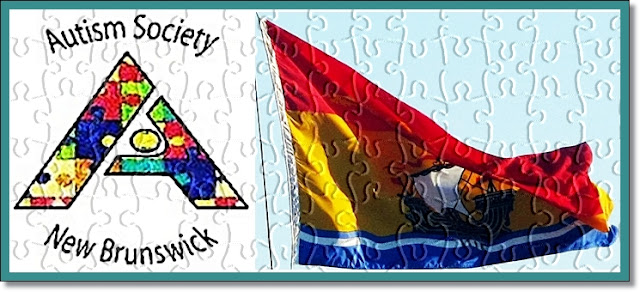Parents and others affected by autism disorders in New Brunswick are invited, and asked, to attend the ASNB 2013 AGM this Saturday March 2013 at MacLaggan Hall UNB Fredericton formally beginning at 12:30, but open for discussion at 11:00 am. Autism families have been excluded from government autism decisions, we are no longer stakeholders in the eyes of the Alward-Carr-Porter administration in matters affecting persons with autism, and if we do not prepare, once again, to speak up and be heard our children and loved ones with autism will suffer the consequences. Come to the meeting this Saturday and prepare to fight for our loved ones with autism.
At present NDP leader Dominic Cardy and former NB Liberal leadership candidate Nick Duivenvoorden had indicated they will be attending the ASNB AGM. An invitation to the Alward government made 7 weeks prior to the ASNB AGM was met with a reply indicating that all none of the invited ministers were free this coming Saturday afternoon. Autism parents, because of our past advocacy successes, and insistence on serious, evidence based help for autism have been consciously excluded from autism decisions by thcurrent government.
Autism progress resulting from strong parent advocacy was made over the years. Early evidence based intervention, autism trained education aides AND the reversal of the decision to close the Stan Cassidy Centre autism team all resulted from autism parent advocacy. All gains were made through direct discussion with concerned political leadership including Bernard Lord, Tony Huntjens and Shawn Graham. Some members of the bureaucracy were helpful but for the most part officials at senior levels in Education and Health in particular opposed vigorously the autism progress that has been made. Since the election of the current administration the bureaucracy has been working hand in hand with the Alward-Carr-Porter government to exclude autism parents from government decsion making affecting young children and students with autism.
The Telegraph-Journal featured a full page promotion of Acting Ombudsman Youth Advocate Christian Whalen which implied wrongly that progess had been made by this government and more progress was on the way ... if only parents ... would remain patient. Mr. Whalen who wrote the article was ill informed. At the end of the day, while no doubt a good person, Mr. Whalen must follow the mandate of the government which signs his pay cheques. He spoke of a "stakeholders" meeting at which autism programs on line were being developed as "cutting edge" progress. The stakeholders did not include the Autism Society NB or autism parents who are being consciously excluded from autism "stakeholder" meetings. Government officials are of the view that autism parent participation would be "sloppy" as they stated at the so called stakeholders meeting. The truth is parent advocacy caused our autism progress and government bureaucrats have been fighting back not in the best interests of autistic children and adults but simply to regain control of autism issues they once ignored.
Contrary to the Whalen article's implications every aide and resource teacher currently autism trained in NB schools was trained at the UNB-CEL Autism Training Program not by the Department of Education and that was done in response to parent advocacy pressure. The Education officials purchased rights to the program theory but have still not developed a practicum component. The practicum component is vitally important and will not be ready for 1-2 years if then. When it is done it will, based on historical discussions, be done "in house" subject to department and union grievance pressures. ASNB opposed such in house training vigorously and successfully despite education department reactions including legal pressure directed at me personally. Based on past history and based on the realities of the CUPE 2745 collective agreement and grievance process it is highly unlikely that the practicum will include rigorous, if any, testing requirements, times for course completion or even criteria for entry and graduation from the in house autism "training".
Today children with autism are escorted from NB schools after calls are made to police, fire and emergency responders. Some are charged criminally. Meanwhile educators follow official policies of physically grabbing children with autism and removing them to isolation rooms. The predictable aggressive response by some autistic children is then considered as the bases for criminal charges.
Parents with autism diagnosed toddlers face delays in getting early intervention for their children. Months of delay will follow admission to the early autism intervention program, months that will be charged as "treatment" on the individual child's record.
Adult care, as always, remains ignored under this as under all previous administrations. Action is just not the strong suit of bureaucracies particularly when hamstrung by philosophy based, cliche thick "community" philosophies which, on the evidence, are in fact counter productive. While our government has never tired of yanging about community persons with severe autism are sent by our governments to psychiatric hospitals and institutions outside of New Brunswick as they have for many years. It is the government adherence to cliche based community philosophy, and refusal to consider development of alternatives, that results in the full institutionalization of adults with severe autism challenges.
If you are concerned about your child or family member with autism, if you are autistic and need assistance, or if you are just genuinely concerned about the challenges faced by persons with autism disorders in New Brunswick meet us this Saturday at UNB-Fredericton, MacLaggan Hall.
Our voices must be heard!
Our voices must be heard!

























